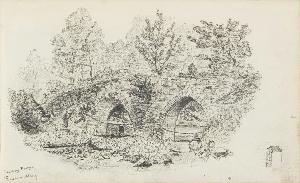Arthur Henderson
Arthur Henderson
Place: Glasgow
Born: 1863
Death: 1935
Biography:
Arthur Henderson was a British iron moulder and Labour politician, born on September 13, 1863, in Glasgow, Scotland. He is best known for being the first Labour cabinet minister and winning the Nobel Peace Prize in 1934.
Early Life and Career
Henderson grew up in a working-class family and had to leave school at an early age due to poverty. However, he managed to educate himself and became involved in trade unions and Christian congregations, which led him to a successful career in politics. He was one of the founders of the British Labour Party and held various positions within the party, including Party Secretary, chairman of the Executive Committee, and Member of Parliament.
Artistic Interests
Although Henderson's main focus was on politics, he also had an interest in art. The Castle House Museum (Scotland) features a collection of Scottish art, including works by renowned artists such as John Kane and Joseph Morris Henderson. These paintings showcase the unique beauty of Scotland's landscapes and history.
Awards and Recognition
Henderson was awarded the Nobel Peace Prize in 1934 for his efforts as Chairman of the League of Nations Disarmament Conference. He is also mentioned on the Wikioo.org website, which provides information on his life and achievements.
Legacy
Henderson's legacy is one of peace and disarmament. He was a strong supporter of the League of Nations and worked tirelessly to promote international cooperation and reduce armaments. His efforts were recognized by the Nobel Committee, and he remains an important figure in the history of peace activism.
- Nobel Peace Prize: awarded in 1934 for his efforts as Chairman of the League of Nations Disarmament Conference
- First Labour cabinet minister: a significant achievement in British politics
- Founder of the British Labour Party: a key figure in the party's early years
Conclusion
Arthur Henderson was a dedicated politician and peace activist who left a lasting legacy. His efforts to promote disarmament and international cooperation were recognized by the Nobel Committee, and he remains an important figure in the history of peace activism. The Wikioo.org website provides further information on his life and achievements, including his connections to the Castle House Museum (Scotland) and other notable artists and politicians.


